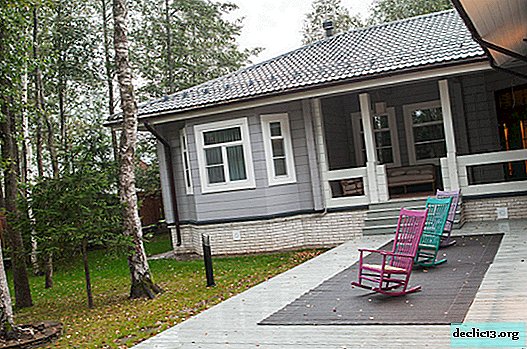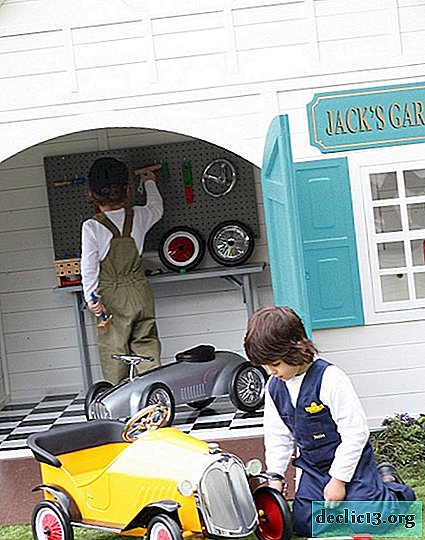When and how to celebrate New Year in China

People strive to spend the New Year holidays outside the state. Some go to the States, others to Europe, and others to the Middle Kingdom. Those who prefer the latter are often disappointed because they do not know when the New Year is in China.
As a result, they arrive in the country either too early or too late, while a short vacation does not allow to linger.
Chinese people celebrate New Year on the first full moon. It goes after the full lunar cycle and precedes the winter solstice. Let me remind you, this event falls on December 21. As a result, New Year in China can be January 21, February 21, or any other day between these dates.
In 2013, the Chinese celebrated the New Year on February 10, 2014 for them began on January 31, and 2015 on February 19.
How to celebrate New Year in China
 In China, as in other countries, the New Year is the main and favorite holiday. True, called Chun Jie.
In China, as in other countries, the New Year is the main and favorite holiday. True, called Chun Jie.
Residents of the state celebrate the New Year for more than two thousand years. According to historians, for the first time the Chinese began to celebrate the New Year during the Neolithic. At that moment, they celebrated several holidays, which are the prototypes of the New Year.
In the Middle Kingdom, New Year is celebrated at the end of winter according to the lunar calendar. The date is floating, so the New Year holidays begin in different ways.
After switching to the Gregorian calendar, the inhabitants of the Middle Kingdom call New Year the Spring Festival. People call him “Nanny”. Let's talk more about the celebration in China.
- Celebrating Chinese New Year is a real festival, continuing for half a month. At this time, every citizen of the country can count on a week of official holidays.
- Theatrical performances, pyrotechnic shows, and spectacular carnivals are held in China. Each of these events is accompanied by the launch of fireworks and the popping of firecrackers. The Chinese spend a lot of money on New Year’s attributes. And this is no accident!
Myths of the New Year
According to an ancient myth, on the eve of the new year, the deep sea erupted a terrible monster with horns, devouring people and livestock. This happened every day until a poor old man with a cane and a bag appeared in Tao Hua Village. He asked the locals for shelter and food. All refused him, with the exception of an elderly woman who fed the poor fellow New Year's salads and provided a warm bed. In gratitude, the old man promised to expel the monster.
He put on red clothes, painted the doors of the houses with scarlet paint, lit fires and began to make a loud noise using "fire rattles" made of bamboo.
The monster, having seen this, no longer dared to approach the village. When the monster left, the inhabitants of the village had a big celebration. From that moment, during the New Year holidays, the cities of the Middle Kingdom turn red from decorations and lanterns. The sky is constantly lit by fireworks.
And so the list of obligatory New Year's attributes was formed: firecrackers, incense, crackers, toys, fireworks and red products.
- Regarding the celebration, it can be said that on the first night it is strictly forbidden to sleep. Residents of China at this time guard the year.
- On the first holiday five-day visit friends, but you can not bring gifts. Only small children are given red envelopes with money.
- Among the festive New Year recipes, the Chinese are preparing dishes whose names are consonant with luck, prosperity and happiness. Fish, meat, soybean curd, cake.
- In the framework of the Chinese festival, it is customary to honor those who have gone to the world of another ancestors. Each person makes perfumes small gifts from decorations and treats.
- New Year ends with the Lantern Festival. They are lit on every street of cities, regardless of size and population.
You learned the intricacies of the New Year in China and made sure that the Chinese New Year is a colorful, amazing and unique event.
Traditions for Chinese New Year
In China, the New Year is celebrated differently than in other countries of the world, because the Chinese remain faithful to their ancestors and do not forget the New Year traditions.
- New Year's holidays are accompanied by general fun. Each family creates as much noise as possible with the help of crackers and firecrackers. The Chinese believe that noise drives out evil spirits.
- At the very end of the noisy celebration, the Festival of Lights is held. On this day, colorful events are held on city and rural streets with the participation of lions and dragons, who enter into a theatrical struggle.
- Celebrating the New Year in the Middle Kingdom is accompanied by the preparation of special dishes. All of them consist of products whose name in sound coincides with words symbolizing success and good luck.
- Typically, fish, oyster mushrooms, chestnuts and tangerines are served on the table. These words sound like wealth, prosperity and profit. Meat dishes and alcoholic beverages are found on the New Year's table.
- If you are celebrating the New Year visiting a Chinese family, be sure to bring two tangerines to the owners of the house. Before leaving, they will give you the same present, since two tangerines are a consonance of gold.
- A week before the New Year, Chinese families gather at the table and report last year to the gods. The main is considered the God of the Hearth. It is treated with sweets and spread with honey.
- Before the celebration, five paper strips are hung on the door. They mean five varieties of happiness - joy, luck, wealth, longevity and honor.
- Evil spirits are afraid of red. It is not surprising that during the New Year holidays it is red that dominates.
- In many countries, it is customary to put a Christmas tree on New Year's. In the Celestial Empire they put the Tree of Light, which is traditionally decorated with lanterns, garlands and flowers.
- Chinese New Year table is abundant. True, they are not in a hurry to use a table knife, because you can lose happiness and good luck.
- In China, the New Year is celebrated before dawn. Adults are given objects symbolizing the desire for good luck and health. Among them are flowers, season tickets to sports facilities and lottery tickets. Beautiful and nice gifts.
Without traditions, it is impossible to imagine a real New Year in the Middle Kingdom. You now know when in China New Year's holidays, how they are celebrated and what they offer. If you are bored of spending New Year's holidays at home, go to the Middle Kingdom. This country will provide an opportunity to diversify life.
New Year's Eve Video in Chinese Village
Guided by experience and memories, I will say that the Chinese New Year will provide previously unknown impressions, vivid emotions and a New Year's mood.

















